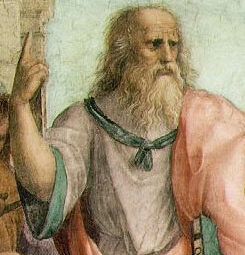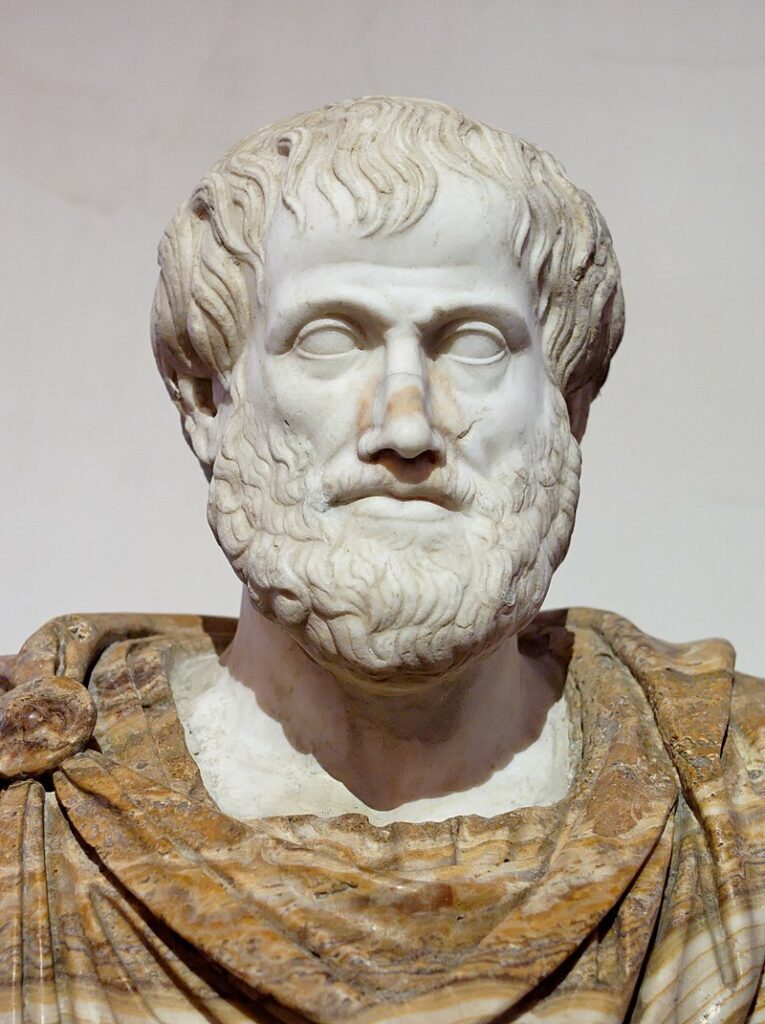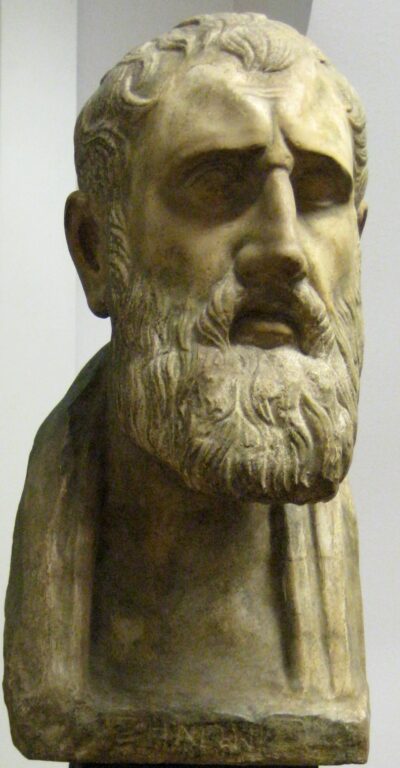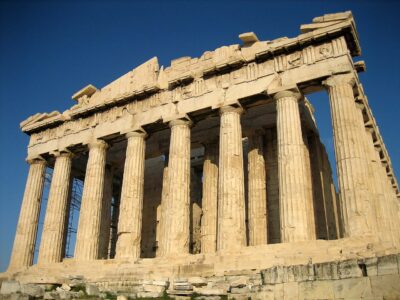パルメニデス:存在の不変性と真理の道―エレア学派の創始者の哲学とその影響

Parmenides: The Immutability of Being and the Path of Truth—The Philosophy of the Founder of the Eleatic School and Its Influence
イントロダクション
古代ギリシャの哲学者パルメニデスは、エレア派の始祖として知られています。
彼の代表作『自然について』は、存在論における革新的な視点を提供しました。
特に「ある(ト・エオン)」という概念は、後の哲学者たちに多大な影響を与えました。
パルメニデスは、紀元前5世紀に活動し、従来の多様な存在論的視点に対して一元論的な立場を打ち立てました。
彼は、変化や生成消滅といった現象を否定し、「あるものは存在し、ないものは存在しない」というシンプルかつ深遠な命題を提唱しました。
この命題は、存在の本質を探求する哲学の根幹に位置づけられ、後のプラトンやアリストテレスなどの大哲学者たちに受け継がれていきます。
パルメニデスの思想は、現代に至るまで哲学の重要なテーマとして議論され続けています。
Introduction
The ancient Greek philosopher Parmenides is known as the founder of the Eleatic school.
His notable work, “On Nature,” offered groundbreaking perspectives on the nature of being.
The concept of “what is” (to eon) particularly had a profound influence on subsequent philosophers.
Parmenides was active in the 5th century BCE and established a monistic view in contrast to the prevailing diverse ontological perspectives of his time.
He denied phenomena such as change and generation-decay, proposing the simple yet profound principle: “what is, is; what is not, is not.”
This principle is central to the exploration of the essence of existence in philosophy, and it was passed down to great philosophers like Plato and Aristotle.
Parmenides’ ideas have continued to be a significant topic of philosophical discussion up to the present day.

Plato
パルメニデスとは:エレア派の始祖の紹介
パルメニデスは、紀元前5世紀頃の古代ギリシャの哲学者であり、エレア派の始祖とされています。
「エレア派」は、存在の一貫性と不変性を主張する論理哲学的・超越思想的な学派です。
彼の思想は、特に『存在論』という詩形式の著作に集約されています。
この作品で、パルメニデスは「存在するものは存在し、存在しないものは存在しない」と述べ、存在の本質について深く掘り下げました。
彼の論理は、後の哲学者たちに大きな影響を与え、特にプラトンやアリストテレスの思想形成に寄与しました。
パルメニデスの主張は、感覚による認識を否定し、理性による認識を重視する点でも特徴的です。
彼の思想は、現代の哲学研究においても重要な位置を占めています。
パルメニデスの生涯
パルメニデスは紀元前515年頃にエレアで生まれた哲学者であり、「エレア派」の創始者として知られています。
彼の思想は「存在するものは変わらない」という主張に基づいており、これは後に「論理哲学的・超越思想的な学派」であるエレア派の基礎となりました。
彼の主要な著作である『自然について』は、詩形式で書かれており、存在と非存在についての議論を展開しています。
パルメニデスはまた、ゼノンやメラスなどの弟子を通じてその思想を広めました。
彼の哲学は後のプラトンやアリストテレスにも大きな影響を与え、古代ギリシャ哲学の発展において重要な役割を果たしました。
エレア派の思想は、感覚に頼らず論理的思考を重視する点で、後世の哲学者たちにとっても大きな示唆を与え続けています。
Who Was Parmenides? Introducing the Founder of the Eleatic School
Parmenides was an ancient Greek philosopher from around the 5th century BCE, regarded as the founder of the Eleatic school.
The Eleatic school is a philosophical tradition that emphasizes the consistency and immutability of being.
His philosophy is particularly encapsulated in his poetic work “On Being.”
In this work, Parmenides delves deeply into the nature of existence, asserting that “what exists, exists, and what does not exist, does not exist.”
His logic profoundly influenced subsequent philosophers, significantly contributing to the development of Plato’s and Aristotle’s thoughts.
Parmenides is also noted for his rejection of sensory perception in favor of rational cognition.
His ideas remain a crucial subject of contemporary philosophical research.
The Life of Parmenides
Parmenides was born around 515 BCE in Elea and is known as the founder of the Eleatic school.
His philosophy is based on the assertion that “what exists is unchanging,” forming the foundation of the Eleatic school’s logical and transcendental thought.
His major work, “On Nature,” written in poetic form, explores the nature of being and non-being.
Parmenides also propagated his ideas through disciples like Zeno and Melissus.
His philosophy greatly influenced later figures such as Plato and Aristotle, playing a crucial role in the development of ancient Greek philosophy.
The Eleatic school’s emphasis on logical reasoning over sensory perception continues to inspire later philosophers.

Aristotle
『自然について』の概要
パルメニデスは、紀元前5世紀に活躍した「エレア派」の哲学者であり、「論理哲学的・超越思想的な学派」の始祖とされています。
彼の思想は「存在とは何か」という問いに対する探求が中心で、特に「存在は一であり、不変である」という主張で知られています。
彼の著作『自然について』は、詩形式で書かれており、現存する断片から彼の哲学の核心を垣間見ることができます。
この作品では、「感覚的な現実」と「真実の現実」の区別が強調され、感覚に依存する認識が誤りであると説かれています。
パルメニデスの影響は後の哲学者、特にプラトンやアリストテレスにも及び、彼らの「形而上学」に深い影響を与えました。
エレア派の思想は、現代の「存在論」や「形而上学」においても重要な位置を占め続けています。
Overview of “On Nature”
Parmenides was a 5th-century BCE philosopher and the founder of the Eleatic school, known for its logical and transcendental philosophical traditions.
His philosophy centers on the question, “What is being?” and he is particularly known for asserting that “being is one and unchanging.”
His work “On Nature,” written in poetic form, offers glimpses into the core of his philosophy through the existing fragments.
In this work, Parmenides emphasizes the distinction between “sensory reality” and “true reality,” arguing that knowledge based on sensory perception is erroneous.
Parmenides’ influence extended to later philosophers, especially Plato and Aristotle, significantly impacting their metaphysical views.
The Eleatic school’s ideas continue to hold a significant place in contemporary ontology and metaphysics.
パルメニデスの思想:論理哲学と超越思想の解析
紀元前5世紀のギリシャ哲学者「パルメニデス」は、エレア派の創始者であり、その思想は後世の哲学に大きな影響を与えました。
彼の著作『存在について』は、論理哲学の基礎を築きました。
パルメニデスは、感覚ではなく理性を通じて真実を探求することを主張しました。
彼の「存在とは何か」という問いは、存在と無の区別を明確にし、すべての存在は変わらないものであると説きました。
これにより、変化や生成消滅を否定する「存在の一元論」を展開しました。
彼の思想は、プラトンやアリストテレスにも影響を与え、特に「形而上学」の発展に寄与しました。
パルメニデスの「論理哲学」と「超越思想」は、現代の哲学や科学の基盤となっています。
パルメニデスの論理哲学の理解
パルメニデスは、紀元前5世紀に活躍した古代ギリシャの哲学者であり、エレア派の創始者として知られています。
彼の論理哲学は、存在と非存在の概念に深く切り込んでいます。
特に彼の主著『存在について』では、「存在するものは存在し、存在しないものは存在しない」という一貫した論理を展開しました。
この思想は、後の哲学者たちに大きな影響を与えました。
パルメニデスの思想の核心は、感覚的な認識を否定し、理性的な認識を重視する点にあります。
彼は、感覚による世界の認識は誤りであり、真実は理性によってのみ把握できると主張しました。
この視点から、彼は「変化や生成消滅は幻影に過ぎない」と結論づけました。
また、パルメニデスの論理哲学は、ゼノンの逆説を通じてさらに発展しました。
ゼノンは、パルメニデスの弟子であり、彼の思想を支持するために一連の逆説を用いて、運動や変化の不可能性を論証しました。
これにより、エレア派の思想は一層強固なものとなりました。
Parmenides’ Philosophy: Analysis of Logical Philosophy and Transcendental Thought
Parmenides, a Greek philosopher of the 5th century BCE, is the founder of the Eleatic school, and his ideas had a significant impact on later philosophy.
His work “On Being” laid the foundation for logical philosophy.
Parmenides advocated for the pursuit of truth through reason rather than sensory perception.
His inquiry into the question “What is being?” clarified the distinction between being and non-being, asserting that all existence is unchanging.
This led to the development of a monistic view of existence, denying change and generation-decay.
His ideas influenced philosophers like Plato and Aristotle, particularly contributing to the development of metaphysics.
Parmenides’ logical philosophy and transcendental thought form the basis of modern philosophy and science.
Understanding Parmenides’ Logical Philosophy
Parmenides, a philosopher active in ancient Greece in the 5th century BCE, is known as the founder of the Eleatic school.
His logical philosophy delves deeply into the concepts of being and non-being.
In his major work “On Being,” he develops a consistent logic: “what exists, exists; what does not exist, does not exist.”
This philosophy had a profound impact on later philosophers.
At the core of Parmenides’ thought is the rejection of sensory perception in favor of rational understanding.
He argued that knowledge of the world through the senses is erroneous and that truth can only be grasped through reason.
From this perspective, he concluded that “change and generation-decay are mere illusions.”
Furthermore, Parmenides’ logical philosophy evolved further through the paradoxes of Zeno.
Zeno, a disciple of Parmenides, used a series of paradoxes to support his master’s philosophy, demonstrating the impossibility of motion and change.
This strengthened the foundations of Eleatic thought even more.

Bust of Zeno (Pushkin Museum)
パルメニデスの超越思想の解釈
パルメニデスは紀元前5世紀に活躍したエレア派の哲学者であり、「存在の一元論」を提唱しました。
彼の思想は「存在とは不変であり、変化や生成消滅は幻影である」というものです。
この考えは『存在について』という詩に詳述されており、論理哲学的な視点から世界を捉える重要な基盤となりました。
彼の弟子であるゼノンは、パルメニデスの思想を発展させ、パラドックスを用いて「運動や変化の不可能性」を論じました。
パルメニデスの思想は、後にプラトンやアリストテレスにも影響を与え、古代ギリシャ哲学の発展に大きく貢献しました。
エレア派の「論理哲学的・超越思想的な学派」としての位置づけは、パルメニデスの存在論に基づいています。
彼の哲学は、現実の背後にある「真理」を探求するものであり、感覚的な経験を超越した理性の力を重視しました。
Interpreting Parmenides’ Transcendental Thought
Parmenides, a philosopher of the 5th century BCE associated with the Eleatic school, championed the concept of “monism of being.”
His philosophy posits that “being is immutable, and change and generation-decay are illusions.”
This concept is detailed in his poem “On Being” and forms a significant foundation for perceiving the world from a logical philosophical standpoint.
His disciple, Zeno, further developed Parmenides’ ideas and argued the “impossibility of motion and change” using paradoxes.
Parmenides’ philosophy influenced later thinkers like Plato and Aristotle, making significant contributions to the development of ancient Greek philosophy.
The Eleatic school’s positioning as a “logical philosophical and transcendental school” is based on Parmenides’ ontology.
His philosophy aimed to explore the “truth” underlying reality, emphasizing the power of reason beyond sensory experience.
パルメニデスの影響:プラトン哲学と後世への影響
パルメニデスは紀元前5世紀のギリシャ哲学者であり、エレア派の始祖として知られる。
彼の「存在論」は、後の哲学者たちに多大な影響を与えた。
パルメニデスの主著『自然について』では、存在は不変であり、変化や生成消滅は幻影に過ぎないと説かれている。
この思想は、プラトンの「イデア論」に大きな影響を与えた。
プラトンは、感覚で捉えられる世界は不完全であり、真の実在はイデア界にあると主張した。
これにより、パルメニデスの存在論はプラトンの哲学体系の基盤となった。
プラトンの弟子であるアリストテレスもまた、パルメニデスの影響を受けつつ、独自の形而上学を展開した。
さらに、パルメニデスの思想は中世のスコラ哲学や近代の形而上学にも影響を及ぼし、哲学史において重要な位置を占め続けている。
プラトン哲学への影響
プラトン哲学は、紀元前5世紀のギリシャ哲学に深い影響を与えた。
特に「パルメニデス」の思想は、プラトンにとって重要な転機となった。
パルメニデスは、エレア派の始祖として「存在」と「無」の概念を論理的に探求し、これによりプラトンは「イデア論」を発展させた。
プラトンの『対話篇』には、パルメニデスとの対話が描かれており、彼の論理哲学的・超越思想的な学派の影響が色濃く反映されている。
プラトンは、パルメニデスの「存在の一元論」を基に、物質世界とイデア界の二元論を構築した。
これにより、現実世界の背後にある「真実の世界」を探求する哲学が生まれた。
さらに、パルメニデスの論理的なアプローチは、プラトンの弁証法にも大きな影響を与え、後の哲学者たちにも受け継がれていった。
パルメニデスの思想は、プラトン哲学の基盤を形成し、その後の西洋哲学の発展に大きな貢献をした。
後世への影響とその評価
古代ギリシャの哲学者「パルメニデス」は、論理哲学的・超越思想的な学派であるエレア派の始祖として知られています。
紀元前5世紀に活躍した彼は、存在についての深遠な考察を行い、その影響は後世の哲学に多大な影響を与えました。
特に「存在とは何か」という問いに対する彼のアプローチは、プラトンやアリストテレスにも影響を与え、彼らの思想形成に大きく寄与しました。
パルメニデスの主要な著作である『存在について』は、詩の形式で書かれ、存在の一貫性と不変性を説いています。
この作品は、後の哲学者たちに「論理的思考」の重要性を認識させる契機となりました。
また、彼の思想は、中世のスコラ哲学や近代の形而上学にも影響を及ぼし、デカルトやスピノザなどの哲学者たちにもその痕跡を見ることができます。
パルメニデスの「存在論」は、現代の哲学においても重要なテーマとして議論されています。
彼の思想は、単なる歴史的な遺産にとどまらず、現代の哲学的探求においても新たな視点を提供し続けています。
The Influence of Parmenides: Impact on Platonic Philosophy and Beyond
Parmenides, a Greek philosopher of the 5th century BCE, is known as the founder of the Eleatic school.
His ontology significantly influenced later philosophers.
In his major work, “On Nature,” Parmenides argues that being is unchanging and that change and generation-decay are mere illusions.
This idea had a profound impact on Plato’s Theory of Forms.
Plato argued that the world perceived by the senses is imperfect, and true reality exists in the realm of Forms.
Thus, Parmenides’ ontology became the foundation of Plato’s philosophical system.
Aristotle, Plato’s disciple, also developed his own metaphysics influenced by Parmenides.
Moreover, Parmenides’ thought continued to influence medieval Scholasticism and modern metaphysics, maintaining a crucial position in the history of philosophy.
Influence on Platonic Philosophy
Platonic philosophy deeply influenced 5th-century Greek thought.
Parmenides’ ideas were a turning point for Plato.
As the founder of the Eleatic school, Parmenides logically explored the concepts of “being” and “non-being,” leading Plato to develop his Theory of Forms.
In Plato’s dialogues, the influence of Parmenides is evident, reflecting the logical and transcendental aspects of his school.
Building on Parmenides’ monism of being, Plato constructed a dualistic view of the material world and the realm of Forms.
This gave rise to a philosophy that sought to explore the “true world” behind the apparent one.
Additionally, Parmenides’ logical approach significantly influenced Plato’s dialectic method, which was passed down to later philosophers.
Parmenides’ philosophy laid the groundwork for Plato’s ideas, contributing greatly to the development of Western philosophy.
Influence and Legacy
The ancient Greek philosopher Parmenides is recognized as the founder of the Eleatic school, known for its logical and transcendental philosophical traditions.
Active in the 5th century BCE, his profound inquiry into being significantly influenced later philosophy.
His approach to the question “What is being?” impacted Plato and Aristotle, contributing greatly to their thought formation.
Parmenides’ major work, “On Nature,” written in poetic form, emphasizes the consistency and immutability of being.
This work highlighted the importance of logical thinking for later philosophers.
His ideas also influenced medieval Scholasticism and modern metaphysics, evident in the works of philosophers like Descartes and Spinoza.
Parmenides’ ontology remains a significant theme in contemporary philosophy.
His thought continues to provide new perspectives in modern philosophical inquiry, not just as a historical legacy but as a living influence.

参考資料:パルメニデスについての詳細な情報源
パルメニデスは紀元前5世紀のギリシャ哲学者で、「エレア派」の始祖として知られています。
彼の主要な著作『存在について』は、存在と非存在の概念を論じる詩形式の作品で、この中で「存在は一つであり、不変である」と主張しました。
彼の思想は「論理哲学的」なアプローチを取り、後の哲学者たちに大きな影響を与えました。
パルメニデスの哲学は、感覚的な現実を否定し、理性による理解を重視しました。
このため、彼の思想は「超越思想的」とも言われます。
彼は、存在するものは永遠であり、変化しないと考えました。
この考えは、後にプラトンやアリストテレスに受け継がれ、形而上学の基礎を築きました。
エレア派の哲学は、ゼノンやメリアスといった弟子たちによっても発展されました。
ゼノンの「パラドックス」は、パルメニデスの教えを擁護するための論証として有名です。
彼らの議論は、現代の哲学や科学においても重要な位置を占めています。
Reference Material: Detailed Information on Parmenides
Parmenides was a 5th-century BCE Greek philosopher known as the founder of the Eleatic school.
His major work, “On Being,” is a poem that explores the concepts of being and non-being, asserting that “being is one and unchanging.”
His philosophy employed a logical approach, profoundly influencing later philosophers.
Parmenides’ philosophy rejects sensory reality, emphasizing understanding through reason.
This aspect of his thought is often referred to as “transcendental.”
He believed that what exists is eternal and unchanging.
This idea was later adopted by Plato and Aristotle, forming the foundation of metaphysics.
The philosophy of the Eleatic school was further developed by his disciples, such as Zeno and Melissus.
Zeno’s “paradoxes” are famous for defending Parmenides’ teachings.
Their arguments remain significant in contemporary philosophy and science.
関連リンク:パルメニデスについて深く探究するためのリソース
パルメニデスは紀元前5世紀に活躍した古代ギリシャの哲学者で、論理哲学的・超越思想的な学派である「エレア派」の始祖として知られています。
彼の著作『存在について』は、存在の本質を探究する重要なテキストです。
この作品では、感覚に頼らず理性によって真理を追求する姿勢が強調されています。
パルメニデスの思想は、後の哲学者たちに大きな影響を与え、特にプラトンやアリストテレスによって深く研究されました。
彼の「存在は一つであり、不変である」とする主張は、現代の形而上学にも通じる重要な概念です。
パルメニデスについて深く探究するためのリソースとしては、彼の著作の翻訳本や、エレア派に関する学術論文が参考になります。
また、オンラインの哲学辞典や専門的な哲学フォーラムも有益な情報源です。
脚注:記事の詳細と補足情報
脚注は、記事の「詳細」と補足情報を提供するために重要な役割を果たす。
特に学術的な文章や専門的な記事において、脚注は読者に「深い理解」を促す手段として使われる。
例えば、パルメニデスに関する記事では、彼の哲学的思想やエレア派の「超越思想的」な側面について詳述する際、脚注を用いることで読者は関連文献や補足情報にアクセスしやすくなる。
パルメニデスは紀元前5世紀に活躍した哲学者であり、彼の論理哲学的な主張は後の哲学者たちに大きな影響を与えた。
エレア派の始祖として、彼の思想は「存在」と「非存在」の概念に焦点を当てている。
脚注を適切に活用することで、こうした複雑な哲学的議論をより理解しやすくし、読者に有益な情報を提供できる。
Related Links: Resources for In-Depth Study on Parmenides
Parmenides was a 5th-century BCE Greek philosopher known as the founder of the Eleatic school, a tradition emphasizing logical and transcendental thought.
His work, “On Being,” is a crucial text for exploring the nature of existence.
This work underscores the pursuit of truth through reason rather than relying on the senses.
Parmenides’ philosophy significantly influenced later thinkers, especially Plato and Aristotle, who studied his ideas extensively.
His assertion that “being is one and unchanging” remains a key concept in contemporary metaphysics.
For those looking to delve deeper into Parmenides, translations of his works and academic papers on the Eleatic school are valuable resources.
Additionally, online philosophy dictionaries and specialized forums provide useful information.
Footnotes: Detailed and Supplementary Information
Footnotes play a crucial role in providing “detailed” and supplementary information in articles.
Especially in scholarly and specialized articles, footnotes help readers achieve a “deeper understanding.”
For instance, in an article on Parmenides, footnotes can guide readers to related literature and additional information when discussing his philosophical ideas and the transcendental aspects of the Eleatic school.
Parmenides, a philosopher active in the 5th century BCE, had logical philosophical assertions that profoundly influenced later thinkers.
As the founder of the Eleatic school, his ideas focus on the concepts of “being” and “non-being.”
Proper use of footnotes can make these complex philosophical discussions more accessible, providing readers with valuable information.

Warning: Undefined variable $comment_form_sns_tags in /home/ktsky/philosophy-kayak.com/public_html/wp-content/themes/shaper/comments.php on line 27
1件のコメントがあります